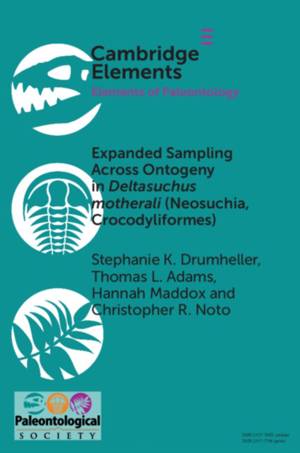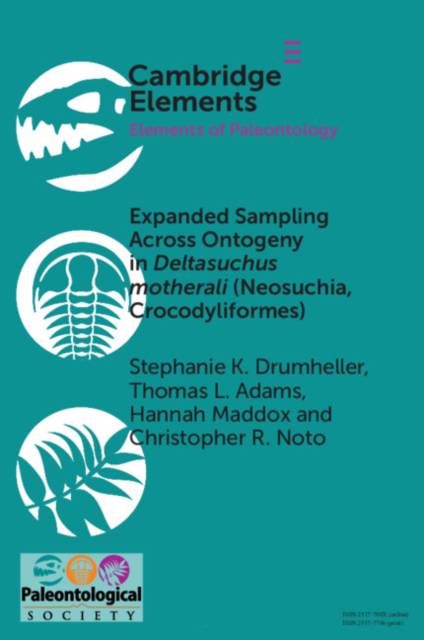
- Afhalen na 1 uur in een winkel met voorraad
- Gratis thuislevering in België vanaf € 30
- Ruim aanbod met 7 miljoen producten
- Afhalen na 1 uur in een winkel met voorraad
- Gratis thuislevering in België vanaf € 30
- Ruim aanbod met 7 miljoen producten
Zoeken
Expanded Sampling Across Ontogeny in Deltasuchus motherali (Neosuchia, Crocodyliformes)
Revealing Ecomorphological Niche Partitioning and Appalachian Endemism in Cenomanian Crocodyliforms
Stephanie K Drumheller
€ 31,95
+ 63 punten
Omschrijving
New material attributable to Deltasuchus motherali, a neosuchian from the Cenomanian of Texas, provides sampling across much of the ontogeny of this species. Detailed descriptions provide information about the paleobiology of this species, particularly with regards to how growth and development affected diet. Overall snout shape became progressively wider and more robust with age, suggesting that dietary shifts from juvenile to adult were not only a matter of size change, but of functional performance as well. These newly described elements provide additional characters upon which to base more robust phylogenetic analyses. The authors provide a revised diagnosis of this species, describing the new material and discussing incidents of apparent ontogenetic variation across the sampled population. The results of the ensuing phylogenetic analyses both situate Deltasuchus within an endemic clade of Appalachian crocodyliforms, separate and diagnosable from goniopholidids and pholidosaurs, herein referred to as Paluxysuchidae. This title is also available as Open Access on Cambridge Core.
Specificaties
Betrokkenen
- Auteur(s):
- Uitgeverij:
Inhoud
- Aantal bladzijden:
- 75
- Taal:
- Engels
- Reeks:
Eigenschappen
- Productcode (EAN):
- 9781009005814
- Verschijningsdatum:
- 3/06/2021
- Uitvoering:
- Paperback
- Formaat:
- Trade paperback (VS)
- Afmetingen:
- 152 mm x 229 mm
- Gewicht:
- 113 g

Alleen bij Standaard Boekhandel
+ 63 punten op je klantenkaart van Standaard Boekhandel
Beoordelingen
We publiceren alleen reviews die voldoen aan de voorwaarden voor reviews. Bekijk onze voorwaarden voor reviews.











